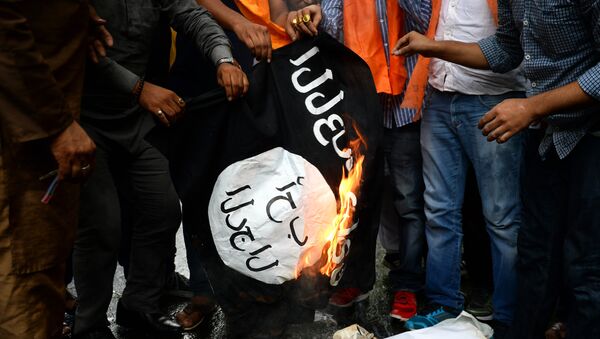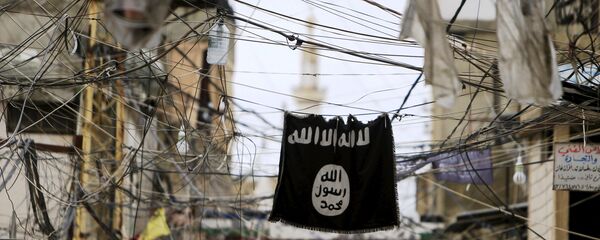A K Verma, Former Chief of the Research & Analysis Wing (RAW), told Sputnik, "The idea is to prevent these people from travelling. A passport is a right, and it is going to be difficult for the government to deny a passport to its citizen unless there are good grounds. So anytime a passport is denied there is the likelihood the person will go to court. The court then has to be convinced that there has been good reason for the passport being denied."
According to officials, actions to revoke passports will be taken on the advice of a special team devised to tackle 'digital jihad'. This special team, comprising experts from the digital world, will have additional support from the cyber intelligence unit of the Intelligence Bureau and RAW. The National Investigative Team (NIA) will also be involved as it has a special cell to tackle the growing menace of Daesh on the Internet. In fact, NIA's latest crackdown on Daesh was based on the report of this particular cell.
Sources from the Home Ministry have told Sputnik, "The government has zeroed-in on some specific information. We want to weed out those from the digital space and make sure that they can't use this space for influencing our youth towards anti-national forces." According to them, the Government has marked around 200 people as Daesh sympathizers and is closely monitoring their Internet activities.
A K Verma says, " Digital Jihad is very dangerous because it can reach everyone who is gullible and potentially vulnerable to such a process. There are so many individuals who can succumb to these approaches that they constitute a phenomenal security risk to the country. I think that everything the government can do, ought to be done to prevent this kind of propaganda reaching the people concerned. The second part of the action would be to somehow reach these very people who are being approached and reform their thinking; to radicalize them; to tell them that their duty to the country is bigger than just killing people."
According to the Ministry of Home Affairs, the National Investigation Agency (NIA) and the State Police in some States have registered a number of cases and arrested some active cadres affiliated to Daesh in the recent past. So far, NIA has arrested 25 suspects.
Haribhai Chaudhary, Minister of State for Home Affairs recently informed the Parliament, "During the investigation of six cases by the NIA, it has been revealed that Daesh is using various internet based platforms for propaganda and to propagate its ideology for recruiting and motivating youth to join Daesh. These arrested persons were in the early stage of planning and conspiracy and had not decided any target for a terror attack."
In order to assess the threat posed by Daesh and to devise a national strategy to deal with it, several meetings have been held by the Ministry of Home Affairs with all the central agencies concerned.



